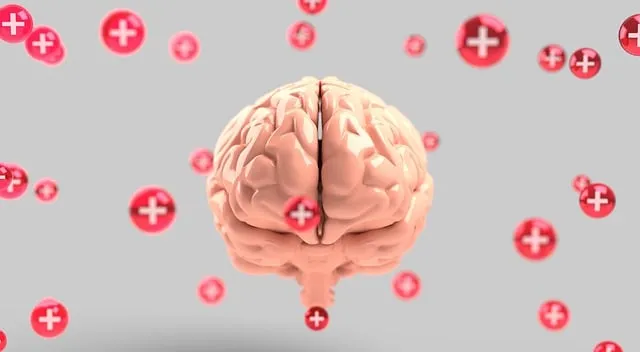Depression, a serious mental health concern, can be mitigated through early recognition of signs like persistent sadness, changes in appetite or sleep, fatigue, and thoughts of self-harm. The Kaiser Permanente behavioral health phone number Westminster emphasizes proactive measures such as work-life balance, emotional regulation techniques, self-care, proper nutrition, exercise, quality sleep, and Cognitive Behavioral Therapy (CBT) to prevent depression. They also promote mindfulness practices, stress reduction, and strong social support networks, providing confidential guidance from trained experts to empower individuals in managing anxiety and depression holistically.
Depression is a prevalent yet treatable condition. This article explores essential strategies for preventing depression, offering a holistic approach to well-being. We begin by demystifying depression, its signs, and symptoms, emphasizing the importance of early recognition. Next, we introduce Kaiser Permanente Behavioral Health Phone Number Westminster as a valuable resource for support and guidance. Additionally, it delves into lifestyle changes, cognitive-behavioral therapy (CBT), and other effective treatments, providing practical insights to foster resilience and mental health.
- Understanding Depression: Recognizing Signs and Symptoms
- Kaiser Permanente Behavioral Health Phone Number Westminster: A Resource for Support
- Lifestyle Changes for Prevention: Nutrition, Exercise, and Sleep
- Cognitive-Behavioral Therapy (CBT) and Other Effective Treatments
Understanding Depression: Recognizing Signs and Symptoms

Depression is a common yet serious mental health condition that can significantly impact an individual’s daily life and overall well-being. Recognizing the signs and symptoms early on is crucial for effective prevention and treatment. According to Kaiser Permanente behavioral health phone number Westminster, some key indicators include persistent feelings of sadness or hopelessness, loss of interest in activities once enjoyed, changes in appetite and sleep patterns, fatigue, difficulty concentrating, and thoughts of self-harm or suicide.
Understanding these signs can enable individuals to seek support before the condition worsens. Burnout prevention strategies, such as maintaining a healthy work-life balance, practicing emotional regulation techniques, and prioritizing self-care, are essential tools in managing mood and promoting overall mental health. By being mindful of these symptoms and taking proactive steps, folks can foster better emotional well-being and avoid the depth of depression.
Kaiser Permanente Behavioral Health Phone Number Westminster: A Resource for Support

For those seeking immediate support and guidance in navigating through challenging times, Kaiser Permanente Behavioral Health Phone Number Westminster stands as a beacon of hope. This dedicated resource offers confidential and professional assistance, providing a safe space to discuss feelings of depression or anxiety. Trained mental health experts are available to offer personalized strategies tailored to individual needs, focusing on building inner strength and coping mechanisms.
One effective approach encouraged by the team is the utilization of conflict resolution techniques to manage stressors. Additionally, they promote mental wellness journaling as an empowering exercise, allowing individuals to track their emotions and progress over time. By combining these practices with ongoing support, Kaiser Permanente aims to empower individuals to take proactive steps towards preventing depression and fostering a more positive mindset.
Lifestyle Changes for Prevention: Nutrition, Exercise, and Sleep

Making positive lifestyle changes is a powerful tool in depression prevention, and it’s an area where many people can take control of their mental well-being. At Kaiser Permanente behavioral health phone number Westminster, we emphasize the significance of these daily habits. Proper nutrition forms the foundation; ensuring your body receives essential nutrients from a balanced diet can significantly impact your mood and energy levels.
Regular exercise is another cornerstone; physical activity releases endorphins, which have been shown to reduce symptoms of depression. Aim for at least 30 minutes of moderate exercise most days of the week. Additionally, prioritizing quality sleep is vital; it allows your brain and body to rejuvenate, and consistent rest can prevent burnout, a known risk factor for mental health issues, including depression. These lifestyle modifications are simple yet powerful steps towards a happier, healthier mind.
Cognitive-Behavioral Therapy (CBT) and Other Effective Treatments

Cognitive-Behavioral Therapy (CBT) has emerged as a powerful tool in the fight against depression. This evidence-based approach focuses on identifying and changing negative thought patterns and behaviors that contribute to depressive symptoms. By working with a trained therapist, individuals can learn effective coping strategies, develop inner strength, and cultivate positive thinking – all of which are crucial for maintaining mental well-being.
In addition to CBT, there are other effective treatments available. Mindfulness practices, stress reduction methods, and social support networks play significant roles in depression prevention and management. Resources like the Kaiser Permanente behavioral health phone number Westminster can guide individuals towards accessing these valuable services. Ultimately, combining professional therapy with personal coping mechanisms allows for a holistic approach to mental health care.
Preventing depression is a multifaceted approach that involves recognizing signs early, seeking professional support like that offered by the Kaiser Permanente behavioral health phone number Westminster, and making positive lifestyle changes. Incorporating nutritious diets, regular exercise, and adequate sleep into your routine can significantly boost mental well-being. Additionally, evidence-based treatments such as Cognitive-Behavioral Therapy (CBT) have proven effective in managing and preventing depression. By combining these strategies, individuals can effectively navigate and overcome depressive episodes, leading to a happier and healthier life.






